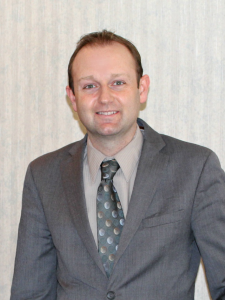Candidates in Court of Appeals races make their cases
By: Michaela Paukner, [email protected]//March 23, 2021//
Candidates in Court of Appeals races make their cases
By: Michaela Paukner, [email protected]//March 23, 2021//
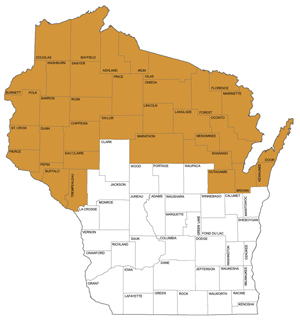
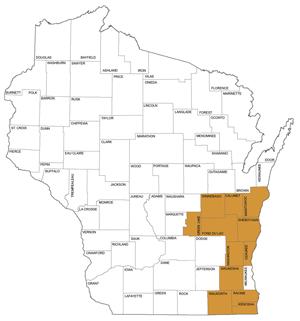
The April 6 election promises to bring some changes to Wisconsin courts throughout the state. The ballot presents contested races for two of Wisconsin’s four Courts of Appeals and 11 contested circuit-court races.
Although the Court of Appeals often doesn’t receive the same amount of attention that the Wisconsin Supreme Court or trial courts do when they handle significant cases, it’s nonetheless an important part of the judicial system. The four candidates on ballots for races in District II and District III are giving voters a choice in shaping this level of the judiciary and an opportunity to learn more about the courts’ work.
Judge Jeffrey Davis, who was appointed to District II in 2019 by Gov. Tony Evers, is running to retain his seat on the bench. His challenger is Judge Shelley Grogan, city of Muskego judge and judicial assistant to Justice Rebecca Bradley. District II encompasses Calumet, Fond du Lac, Green Lake, Kenosha, Manitowoc, Ozaukee, Racine, Sheboygan, Walworth, Washington, Waukesha and Winnebago counties.
Meanwhile, Rick Cveykus, managing partner at Cveykus Law in Wausau, and Judge Greg Gill Jr., a circuit court judge in Outagamie County, are competing for the seat now occupied by Judge Mark Seidl on the District III appellate court. This court handles cases from Wisconsin’s northern counties and has its headquarters in Wausau.
In four separate interviews, the Wisconsin Law Journal asked each candidate about his or her judicial philosophy, proposed solutions to some of the court system’s most pressing problems and the influence that campaign contributions might be having on their nonpartisan races.
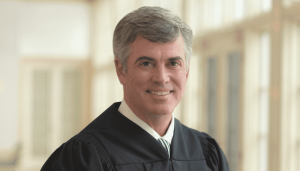 Judge Jeffrey Davis, District II
Judge Jeffrey Davis, District II
Judge Jeffrey Davis believes his 32 years of experience in business and civil litigation has benefited District II in the year and a half he’s been on the court.
“Diversity of experiences and expertise really helps the court as a whole get to an answer in any given case,” Davis said. “We each rely on each other to bring those areas of expertise to bear.”
To Davis, the most important decision he has made as an appellate judge came in Friends of Frame Park v. City of Waukesha and State v. Rodolfo Sanchez Mora. In Friends v. Waukesha, a public-records case involving a draft contract, he helped make direct contributions to the development of the law at issue in the case. In Mora, meanwhile, his decision reversing the lower court allowed the defendant to continue making his livelihood as a commercial driver.
Davis also ranks among his achievements his work to make the Court of Appeals more visible with the State Bar of Wisconsin. He made a presentation on effective appellate practice in the courts to help lawyers better understand the audiences they are trying to reach.
When attorneys appear before Davis, he tries to weigh their arguments by simply applying the law fairly and accurately.
“I am going to scrupulously follow the law as best I can by being very diligent in reviewing the record,” Davis said, “intellectually honest, unbiased toward any political party, bearing in mind practical implications of the decisions I write.”
He said he doesn’t like to use a label to describe his philosophy because of the associations attached to such words. In Davis’ opinion, the biggest danger that the Wisconsin court system is faced with is the steady creep of politics into the judiciary.
Davis said he is concerned about the perceptions of bias that can arise when politically connected donors make campaign contributions. Rather than judges, though, he think it’s the Legislature that should be dealing with this threat.
“I think these races should be more about experience and the respect that candidates have among their colleagues and the judiciary,” Davis said, “all of which goes to the question of competence, as opposed to an ideology, because ideology is not the same thing as law.”
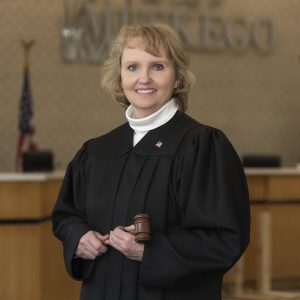 Judge Shelley Grogan, District II
Judge Shelley Grogan, District II
In many ways, Judge Shelley Grogan considers herself to be the most experienced candidate to run in an appellate court race.
“I’ve been doing this work for over 25 years,” Grogan said. “I’ve been training for this job most of my career, in addition to having the experience in the lower court of interacting with the people.”
Grogan worked as a clerk for Court of Appeals Judges Ted Wedemeyer, Ralph Adam Fine and Rebecca Bradley for 21 years. When Bradley was appointed as a Supreme Court justice in 2015, Grogan became her permanent judicial assistant. Grogan also serves as the sitting judge in the City of Muskego, where she’s lived for more than 25 years, and an adjunct professor of law at Marquette University Law School.
“I bring a true commitment to the Constitution and rule of law,” Grogan said. “There will be no learning curve for me because I’ve been serving as a neutral in the judicial branch for so long.”
Grogan said she is a constitutional conservative, approaching cases by looking at the text of the Constitution and law. She considers herself an originalist who applies the Constitution’s original public meaning and a textualist who applies the plain-language meaning of state laws.
“I will not legislate from the bench,” Grogan said. “I will always do the proper role of the judge, which is to apply laws that the Legislature writes.”
When asked about the effects of campaign contributions, Grogan said she can’t ask for donations or be a member of a political party. At the same time, she said, people of any party have a right to donate to whomever they want. She believes her donors are backing her because they support her judicial philosophy.
“I have been working really hard to get my message out to the voters that should they choose me, I will always support the Constitution,” Grogan said.
She’s also been working to show voters the importance of the Court of Appeals. The appellate courts are often the last stop for important legal matters, Grogan said. But too few people are aware of the role the court plays.
“In the April elections, often judges run unopposed,” Grogan said. “I believe that people should have a choice, particularly when the person holding the office was appointed rather than elected by the people.”
Attorney Rick Cveykus said every judge begins her analysis of an issue with the same question: What does the law say? The differences in judicial philosophy come when the answer isn’t clear.
“Life is complicated,” Cveykus said. “There are times when life situations are not going to fall directly into statute, and then judges have to do everything they can to get a just result.”
Cveykus, the managing partner of Cveykus Law in Wausau, has been practicing criminal law, family law and small claims in the area for 14 years. He said he’ll bring an understanding of trial lawyers’ experiences to a group of judges who haven’t worked as attorneys in years.
Beyond that, Cveykus said the court would benefit from his experience as a UW Law School lecturer. He’s taught courses on criminal law, the First Amendment and Constitutional law for the past six years. During his classes, he’s asked students to look to precedent and the Constitution, rather than politics, for answers to pressing questions.
“I’m not looking for a political answer,” Cveykus said. “I’m looking for what is the right legal answer.”
Cveykus said politics are playing a part in his appellate race, and he believes donors are giving money to his opponent in order to protect a system they believe protects their interests. He’s concerned continued outside political influence could compromise the neutrality of the law.
“As we move away from that, it becomes what is the law that helps us most today?,” Cveykus said, “And that becomes a worry, especially when politics is involved. The law’s a moving target.”
Another deficiency Cveykus identified at the appellate level is the frequency at which legal questions are waived. If elected, he plans to bargain with his colleagues to ensure they’re discussing the right issues in their opinions. If they don’t, he said, he’ll simply have to write his own concurrences and dissents.
“Our job is supposed to be a check on government power,” Cveykus said. “Our job is to say people’s rights come first. If we start looking for every reason not to address legal issues … we start to lose the moral high ground that courts have to have.”
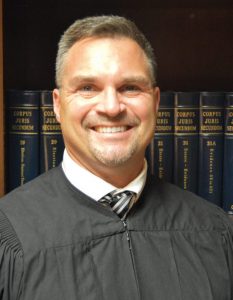 Judge Greg Gill Jr., District III
Judge Greg Gill Jr., District III
Judge Greg Gill Jr. has been an Outagamie County circuit court judge since 2011. He’s now serving on Branch IV, the county’s mental health court and the statewide commercial court pilot docket. Before that, he had worked as an assistant district attorney and in private practice.
He said those experiences will help him in his own analysis and bring a different perspective to the District III court.
He too adheres to the textualist judicial philosophy.
“I believe my job is to apply the law as written, as opposed to rewriting or pseudo-legislating from the bench,” Gill said.
As long as the law passes constitutional muster and is clear in its expectations, Gill believe he has an obligation to follow it — whether or not he might agree with it.
“If I had a different approach, it leads to the possibility of too much inconsistency or indecisiveness,” Gill said. “Part of the beauty of the court system, if it is properly functioning, is that it helps answer questions. It helps resolve issues in a peaceful manner.”
As for the financial support his campaign has received, Gill noted that he’s made a point not to accept money from political parties. And as for his other donors, he said he hasn’t made them any promises, other than saying that he’ll conduct himself in a manner consistent with his judicial philosophy.
If someone who is a donor would come before him in the Court of Appeals, he said, he would make it a point to disclose that fact at the outset of the case. Although he believes he’d be able to remain impartial, he would also allow the parties to comment.
“I want the parties to know I’m not hiding anything,” Gill said. “I believe that disclosure lets the parties know that this is going to be decided on the merits and in a fair manner.”
Gill said he has an obligation to remain fair and impartial to anyone who appears in front of him.
“At the end of the day, as a trial court judge, I am accountable to all citizens of Outagamie County,” Gill said. “God willing that I am elected to the Court of Appeals, I become a judge for all citizens, regardless of whether or not they cast a vote for me.”
The election is scheduled for April 6. To learn more about the candidates in the contested trial-court races, click here.
Legal News
- State Bar leaders remain deeply divided over special purpose trust
- Former Wisconsin college chancellor fired over porn career is fighting to keep his faculty post
- Pecker says he pledged to be Trump campaign’s ‘eyes and ears’ during 2016 race
- A conservative quest to limit diversity programs gains momentum in states
- Wisconsin prison inmate pleads not guilty to killing cellmate
- Waukesha man sentenced to 30 years for Sex Trafficking
- 12-year-old shot in Milwaukee Wednesday with ‘serious injuries’
- Milwaukee man convicted of laundering proceeds of business email compromise fraud schemes
- Giuliani, Meadows among 18 indicted in Arizona fake electors case
- Some State Bar diversity participants walk away from program
- Wisconsin court issues arrest warrant ‘in error’ for Minocqua Brewing owner
- Iranian nationals charged cyber campaign targeting U.S. Companies
WLJ People
- Power 30 Personal Injury Attorneys – Russell Nicolet
- Power 30 Personal Injury Attorneys – Benjamin Nicolet
- Power 30 Personal Injury Attorneys – Dustin T. Woehl
- Power 30 Personal Injury Attorneys – Katherine Metzger
- Power 30 Personal Injury Attorneys – Joseph Ryan
- Power 30 Personal Injury Attorneys – James M. Ryan
- Power 30 Personal Injury Attorneys – Dana Wachs
- Power 30 Personal Injury Attorneys – Mark L. Thomsen
- Power 30 Personal Injury Attorneys – Matthew Lein
- Power 30 Personal Injury Attorneys – Jeffrey A. Pitman
- Power 30 Personal Injury Attorneys – William Pemberton
- Power 30 Personal Injury Attorneys – Howard S. Sicula





